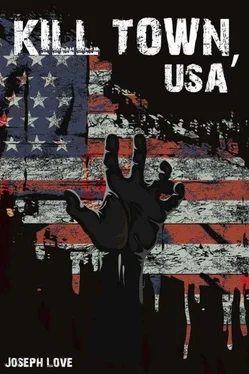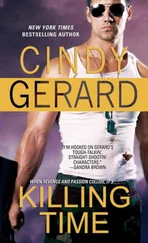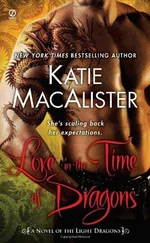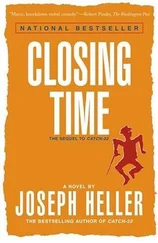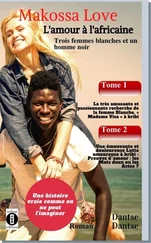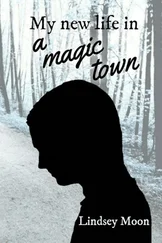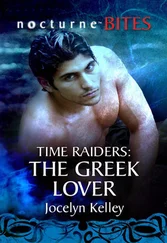“I’m as lost as you. But I come up with an idea and I don’t doubt it. I’ll make it work. If you can make something else work, we’ll do that.”
“You’re…”
“What?”
“So much like Watts.”
I stopped the truck and turned on the dome light. The clock on the dash said it was three in the morning. “I’ll be honest with you. From here on, I don’t have a plan. If you have an idea, any at all, I’m willing to try it. Does that make me like Watts? Because Watts was a coward. I could tell that the second I saw him.”
“Only a coward shoots a little boy.”
“Did you want to go back? Did you want to look at his sister? His parents? Did you want him to shoot you, like a coward hiding in the dark? I wasn’t going to let it happen. But you can go back and stay there and wait for whatever’s next.”
Her eyes swelled but she didn’t look away. Fat tears splashed across the front of her jacket. “I hate it here. This isn’t a place I know anymore.”
“We’re lucky he didn’t go to our room first.”
She nodded.
The first checkpoint was at a Presbyterian church past a sharp bend in the road. Before the curve, I stopped in the road and killed the lights. I let the truck idle around the curve until the church came into view. Stadium lights mounted to booms were powered by a generator on the ground. It puffed a silent, silver exhaust. I drove slowly into the ditch.
I checked the map and turned up the radio. It chirped.
I picked up the mouthpiece. “Ascension unit check-in.”
“Ascension unit, check.”
“Howell, Huff, and Gerard?”
I watched a guard answer the radio. He paced the large white door of the church. A pair of binoculars and a rifle hung from his neck.
“Negative, Huff’s reassigned tonight. Manhunt.”
“Howell?”
“Check.”
“Gerard?”
Static.
“Gerard?”
“Uh, he’s in the john. I’ve got his radio.”
An orange portable toilet sat shrouded in the church’s shadow. I rested the barrel of the rifle on the edge of the window and aimed at Howell, who stopped in front of the doors to stare at the sky. The moment his skull sprayed against the white door we heard his delayed voice, “Hello?” on the radio.
I reloaded and aimed at the portable toilet. But Gerard was in no hurry. Surely, I thought, he must have heard the gunshot.
But there was no sign of Gerard. I fired at the port-a-john several times up and down. Still as a summer lake.
We came to a bypass, a four-lane highway barricaded with barbed wire and chain-link fence. A rickety checkpoint was fashioned out of an old Sno-Cone stand. More stadium lights and generators were set up, and as we approached the guards trained them right at us. The checkpoint was lousy with guards wearing camouflage jumpsuits and Carhartt beanies. Their arms rested on top of their rifles. The men just shuffled around. Matthew Scudder was right. It was the most useful these people had probably ever felt. One by one, the men spotted the truck and waved. I drove straight for the checkpoint, the Winchester propped up on the dash.
“Radio check, Scudder,” the radio crackled.
Audrey tossed me the receiver and I answered in a whisper, “Check.”
“You just wake up?”
“Yeah, another long night.” I slouched in the seat and flipped a row of auxiliary switches for the lights, blinding the guards. We rolled past the Sno-Cone stand awash in white halogen.
“Be advised, we haven’t seen the salt truck yet.”
“Copy.”
Audrey held up a small yellow notebook, a hundred or so pages covered front and back with numbers, addresses, and names. “Look,” she said, “the real yellow pages.”
“What is that?”
She looked closer, flipping through the first couple pages. “Oh. Shit.”
“What is it?”
“It’s a list.”
“What kind?”
“Look, here’s Sewell and his wife,” she handed me the notebook.
SEWELL, HOWARD M., 4865 GOCHIE FORD FARM ROAD, QUARANTINE, LENA C., SPOUSE, POSSIBLY INFECTED, CULL.
“It’s full of names,” she opened the console and pulled out another notebook, and a third. “They’re all full. They must have everyone in the county listed here.
“A cull log.”
“It’s not right. There are innocent people locked up by madmen.”
“There are dangerous people locked up, too.”
“Not all of them.”
“No.”
I steered the truck toward the school road. The snow was mostly gray slush. The school was circled on one of the maps and labeled “Containment.”
The high school was outfitted with lights on cranes and blocked off by barricades. Three rows of razor wire wrapped the fences. A lone man sat inside a tiny concessions booth keeping guard over the two gates. I sat up and aimed at the man, but Audrey slapped my forehead.
“Don’t you see the guards up there?”
“I don’t see anything.”
“They’re on the roof. They’re on the lights. They’re all over.”
I squinted. Sure enough, portly guards stood on the roofs, shifting foot to foot and rubbing their hands together.
I drove straight, auxiliary lights burning. The guard waved. I tapped the horn and we made our way inside the compound. I followed the road to the main building. Gas tankers were parked in the lot to fuel generators. Million-watt bulbs turned the campus into a movie set. Watchmen patrolled the sidewalks, fingers off their triggers and up their noses.
We toured the campus. Everywhere we drove, we were greeted with happy waves by guards. They thought we were Matthew Scudder, Revolutionary. Leader of the New World. And everywhere we drove, we came across more guards.
We stopped in front of the football field. Hastily fastened to the top of the fence was more razor wire, sagging in some places and taut in others. A lookout had been made out of the announcer’s box, and the floodlights shined brightly on the field. A couple thousand infected strangers were locked inside. Their skin was gray and black, bubbling with maggots. Their faces were gaunt, mouths agape and drooling black blood.
“Do you see that?” She pointed to the bleachers. “Jesus. Do you see that?”
“See what?”
“That woman under the stands. Right there.”
I saw her. She was in a nightgown and clinging to a girder.
“Can those things climb?”
“What do you mean?”
“Like that woman, Jack!”
“I don’t think they can climb. If anything, they’re clumsy.”
“She’s not one?”
“Not yet, looks like.”
“We have to get her down. Jack, we have to help her.”
“We can’t go in there.”
“She’s stranded.”
I drove behind the stadium, drawn by headlights hovering back and forth, blinking behind a patch of spindly trees. We came across a bulldozer pushing buckets of dirt into a hole. We made out the hands and feet of the damned. Their limbs jiggled as the bulldozer scraped by.
“Shoot him. Shoot the driver,” she said.
“What good’s that?”
“Watch. He pushes the dirt to the hole, he makes a pass to the dirt. When he’s facing the stadium, just shoot him. The bulldozer will drive right through the fence.”
Audrey was right. With every other turn, he aimed straight for the football field. I rolled down the window and aimed at the driver. I followed him for several bucket loads, mesmerized by the spinning lights atop the machine. When he faced the stadium again, I fired. I missed, nicking the steel cage around him. The dozer twitched to the left. I made the next shot, but the bulldozer was off course. It headed toward the corner of the field, chugging along.
The yellow and dirt-brown dozer plowed through the razor wire and chain link fence. The metal poles bent under its tracks and there was a satisfying snap as wires whipped through the air. It plowed through the swarm of bodies in the corner of the field. Their hands reached out of the bucket and groped for release. The others ambled straight for the opening in the fence. A tornado siren howled. Guards barreled out of the announcer’s booth, assault rifles aimed at the muddy field. The guards fired madly at the Heathens, but there were too many. The Heathens swarmed the bleachers, and the guards desperately scrabbled back to the booth. Or so they tried. The Heathens weren’t fast but they were many. They were inescapable. They tore the guards apart. It was a free-for-all. The guards thrashed and cried. They didn’t want to die. They didn’t want to become what they loathed. But it was all in vain.
Читать дальше
